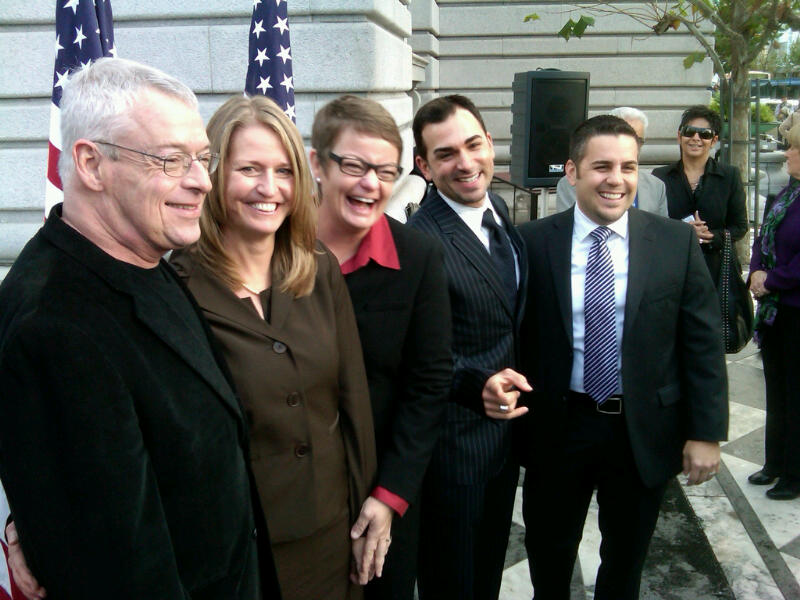Months after agreeing to a request by the 9th Circuit Court of Appeals, the California Supreme Court has set a date (September 6th) for oral arguments to consider whether state law allows proponents of ballot measures to defend them in court when no one else will.

The 9th Circuit panel hearing the appeal of Judge Vaughn Walker's decision striking down Proposition 8 is awaiting the State Supreme Court's decision on standing before it returns to the merits of this appeal.
UC Davis Law Professor Vikram Amar says the legal question is complicated and is not easily categorized in liberal versus conservative terms.
“On the one hand you could say conservatives should not want cases to be brought in court very easily because they don’t want the courts meddling with what the Legislature does,” says Amar. “So conservatives should generally like a standing doctrine that limits access to federal courts to reduce litigation and reduce lawsuits.”
On the other hand, says Amar, “a conservative may want standing doctrine to be a little more generous to Prop. 8 backers to make sure initiatives like Prop. 8 aren’t killed by liberal elected politicians, like attorneys general and governors. So standing and issues like it sometimes invert political instincts because these doctrines are easy enough to manipulate so that you can often use them to reach a particular result in a particular dispute without binding yourself in other bind cases down the road … where your result inclinations may be different.”
If the court advises the 9th Circuit that California law does not give initiative proponents legal standing, it’s nearly certain the Prop. 8 appeal will die. And, Amar says, the chances the U.S. Supreme Court would take up an appeal of that are "infinitesimally small."